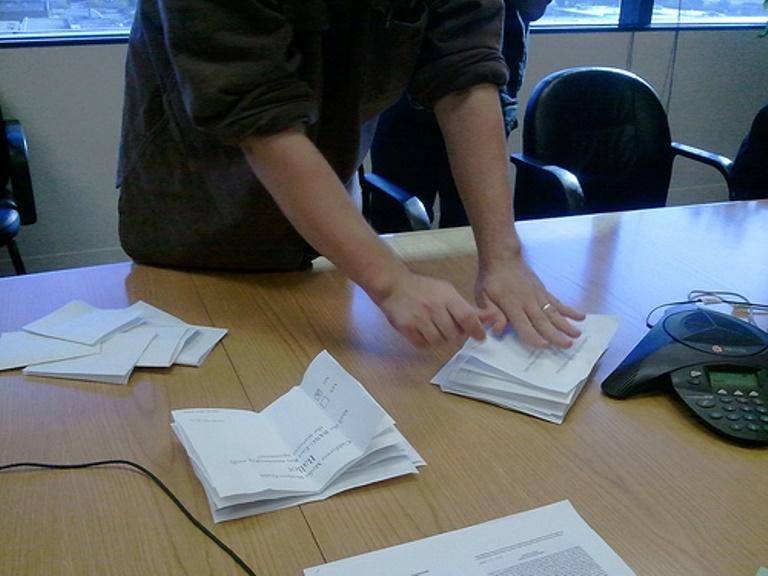"Queensland conservatives handed lesson at polls"
March 7th, 2015 Queensland voters delivered a shocking upset in the recent election, writes Jake Elson, 21, a Commonwealth Correspondent from Bunbury in Australia, as he examines politics and factors behind the balloting.
Queensland voters delivered a shocking upset in the recent election, writes Jake Elson, 21, a Commonwealth Correspondent from Bunbury in Australia, as he examines politics and factors behind the balloting.
Shocked, surprised, stunned. These are but a few words that can describe what has happened in Queensland over the last month.
After the disastrous election in 2012 that left Queensland Labor with only seven seats in the 89 seat legislature, Annastasia Palaszczuk has managed to regain power – albeit with the support of an independent member . But one has to ask: How this did happen in the first place? Surely the Liberal National Party under Campbell Newman should have comfortably retained power, even with a smaller majority?
It’s here where the answer can be found. The LNP was swept back to power in 2011 for the first time since 1998 after a disastrous last term under Labor with 78 of 89 seats – the largest parliamentary majority in the history of Australian politics. Newman, the former Lord Mayor of Brisbane, was given a clear and concise mandate to repel the debt incurred by Labor over the 13 previous years. It’s largely a result of Queensland’s unique voting system – the optional preferential vote. Basically, the voter gets a choice of whether to vote preferentially, as in federal elections, or to tick one box (first past the post). Evidently, around 70 per cent chose the latter, meaning results can be lopsided as his 2012 win. Regardless, however, of the electoral system, any government with such a large majority – especially in a country where victories this large are very rare – would begin to feel somewhat cocky and, eventually, arrogant.
It’s this false sense of security that is likely to send the LNP back to the opposition benches. It is oft said with great power comes great responsibility. From the election results, it’s clear the people of Queensland felt that the Newman government was somewhat irresponsible. Many believed that Newman’s attack was a slippery slope to the dark days of the Bjelke-Petersen era, where freedom of speech and civil liberties were extremely lacking by Australian standards. Indeed, his weakening of the Corruption and Crime Commission as well as his poorly implemented and clearly rushed Anti-Bikie laws led to a severe rebuke from Tony Fitzgerald QC, the man who led the inquiry into corruption and abuses of power under the Bjelke-Petersen regime.
Newman’s style of leadership itself was rather polarizing. Queensland has a history of populist leaders, stemming from the fact that Queensland has not had an upper house since 1922, removing a process of the ‘checks and measures’ theory prevalent in Westminster parliaments. Newman was no exception. As mentioned, the Queensland Parliament was able to pass laws which severely undermined liberty and due process as a result. Indeed, his polarising demeanour lost the support of traditional conservatives such as shock-jock Alan Jones.
The LNP economic policies were not flash-hot either. Elected on a platform of reducing a record level of debt accrued under the administrations of Anna Bligh and Peter Beattie, Newman failed to make any meaningful attempt to curb wasteful spending and debt. Things such as the Clem7 tunnel privatization, which only recovered one-fifth of the total expenditure used to build it, and big spending programs severely dented public belief. To make matters worse, the dismissal of nearly 2,000 nurses (despite promising otherwise) and the proposed asset-leasing program prior to the election made many wonder whether this was an ideological point rather than genuine tackling of debt.
From here, the LNP really should get together at both a state and federal election and try to sort out the fallout. Some have criticised the Abbott government’s unpopularity, yet in reality federal issues were only a minor crux in Queensland’s political climate. The blame game, however, must be totally ignored. Simply looking for a scapegoat will do little to win back power. Rather, they need to look at what went wrong, how that happened, and how it can be prevented. Quite clearly, the last three years were an ideological disaster, stemming from the worrying presence of neo-conservatism within centre-right parties across Australia. The LNP suffered an image failure as a result, being portrayed as a party of the wealthy and not caring for the rest. These problems need to be addressed. If not, one has to wonder if they can even win in three years’ time.
photo credit: Eric counts ballots via photopin (license)
…………………………………………………………………………………………………………………
About me:
I am a history buff, but also am into soccer. I referee soccer, and would like to go FIFA one day. I’m currently studying politics and international relations at Edith Cowan University. My aim is to become a police officer in Western Australia, and I would like to be Prime Minister one day.
I am a Conservative and a Monarchist, and believe in the role of the Commonwealth as a tool for good.
…………………………………………………………………………………………………………………
Opinions expressed in this article are those of the author and do not necessarily represent the views of the Commonwealth Youth Programme. Articles are published in a spirit of dialogue, respect and understanding. If you disagree, why not submit a response?
To learn more about becoming a Commonwealth Correspondent please visit: http://www.yourcommonwealth.org/submit-articles/commonwealthcorrespondents/
…………………………………………………………………………………………………………………




